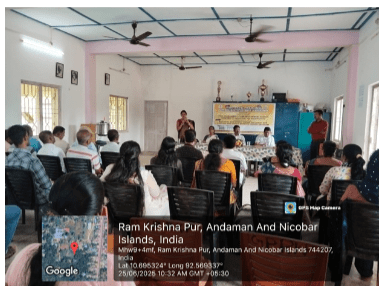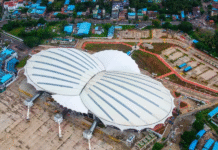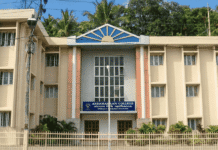In a push to boost honey production and introduce modern apiculture techniques, the Department of Agriculture, Little Andaman, in partnership with the High Value Agriculture Development Agency (HVADA), launched a two-day training programme on scientific beekeeping. The training is being conducted under the National Beekeeping and Honey Mission (NBHM) of the Ministry of Agriculture and Farmers Welfare.
The programme, hosted at the Gram Panchayat in Ramakrishnapur village, was inaugurated in the presence of local elected representatives and agricultural officials. The sessions are aimed at building capacity among local farmers and aspiring apiculturists by promoting updated techniques and scientific methods in honey harvesting and bee colony management.
The initiative has garnered the interest of 34 local participants, including both experienced and new beekeepers, all eager to refine their skills and adopt practices that can increase output and ensure better hive health. Technical experts from the Agriculture Department conducted sessions on hive management, bee health, environmental factors, and proper use of equipment.
Interactive training modules were complemented by hands-on demonstrations of beekeeping tools and hive components. Participants were given opportunities to closely observe hive behaviour, learn about protective equipment, and understand the role of bees in pollination and agricultural sustainability.
The emphasis of the programme lies in replacing traditional practices with informed, sustainable ones, capable of meeting both local demand and the market potential of organic honey. In addition to honey, the training also touched upon potential by-products such as beeswax, propolis, and royal jelly, which can add supplementary income for small farmers.
Officials involved in the programme highlighted the significant potential for beekeeping in the Little Andaman region, given its flora and conducive climatic conditions. Encouragement was also extended to women farmers and youth, as apiculture is increasingly being seen as a low-cost, high-benefit livelihood activity in rural India.
The two-day session aligns with the broader national strategy to integrate beekeeping into agricultural frameworks and rural employment schemes. The Agriculture Department hopes to scale the training into a long-term knowledge support system for the region’s growing beekeeper community.





